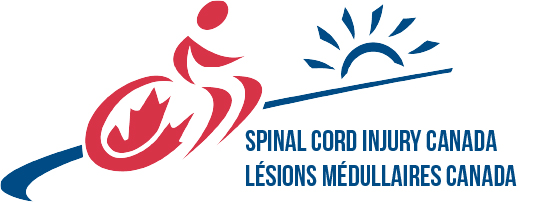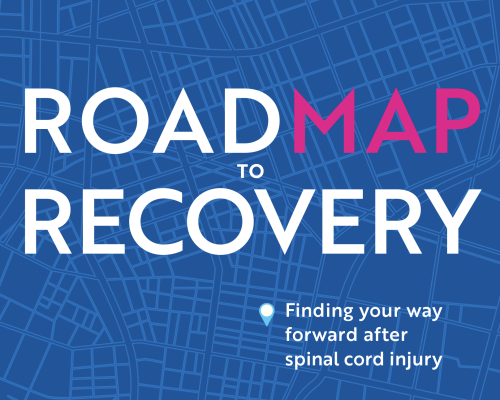Check out Julie Sawchuck's Road Map to Recovery ebook. This guide is primarily for people with spinal cord injuries. Family members and friends will also benefit from this information. The guide is also for doctors, nurses, physios, occupational therapists, social workers, researchers, and recreationists who may want to understand spinal cord injury through Julie's lived experience.
You can download your free copy!
In her own words, in the preface of the ebook, Julie says the following:
Who should read this book?
"Have you picked up this book because you have, or someone you know and love has, just become a member of a group that no one wants to join? No invitation; it just happened. Spinal cord injuries (SCI) can be complicated, forever life-altering events. They take you down a path that you have never travelled before, which is why it's helpful to have someone help you through.
"You may be looking for help in understanding what is going on, who all these people are and how to get the most from them to reach the best recovery possible. We want to reduce the feeling of isolation that often occurs with an SCI; you are not alone.
"If you are a part of an SCI recovery team, this book is a valuable tool. Surgeons, doctors, nurses, physiotherapists, occupational therapists, social workers, dieticians, recreation therapists or students of any of these professions: read on! Although you have done some hardcore schooling to get to where you are right now, this book will help you see life through the eyes of someone with an SCI.
How to best use this book:
"This is a roadmap. Like most other maps, the path to where you are going is not straight; therefore, this book was not designed to be read from cover to cover (although you can if you wish), but more like a "choose your own adventure." I say that tongue-in-cheek because I know it is not an adventure that anyone would choose to have. Read the chapters that apply to you first and foremost. Use the Table of Contents to decide what you need to read about right now (what is your burning issue?) and then go from there.
"In Chapter One, I tell my story. You'll learn about the collision that caused my SCI and how I got to where I am now.
"In Chapter Two, you'll read about caring for a family member who has sustained an SCI. Why did we include this? We feel that the role of the family member "caregiver" is one that is vastly overlooked – and needs to be talked about more often. The next three sections describe the key phases of recovery after spinal cord injury:
"Chapter Three: Acute care — weeks to months in survival mode
"Chapter Four: Welcome to Rehab!
"Chapter Five: Going Home — from now until forever. Although you may have to deal with legal and insurance issues before you get home from rehab,
"Chapter 6 goes into detail about these matters.
"Chapter 7 will introduce you to some of the "I'm recovered" things that you may be looking forward to (like travel, recreation, family life and returning to work) and some you may not be (like finances). Within each section of the book, you'll find Professional Points. These are question-and-answer sections formatted into bite-sized interviews with the professionals you can expect to meet and work with during each stage of your journey. There are personal stories from me (Julie's Journey) and other SCI individuals (Peer Perspectives) that I have met or spoken with along the way; those who have been through it and come out the other side.
"Chapter 8 contains sources of information and resources you can use to access and expand your knowledge or to obtain specific support. Our advice is for you to read this book in any fashion that works best for you and where you are in your journey. Highlight things you want to know more about or people that you know you need to talk to. There is a lot of information coming your way and a long period during which you may need to refer back to refresh your memory. Recovery from an SCI requires months and years. Whether you have recently sustained a spinal cord injury, are a family member, a friend or a professional working in the field of SCI, use this book to help you find your way forward."

